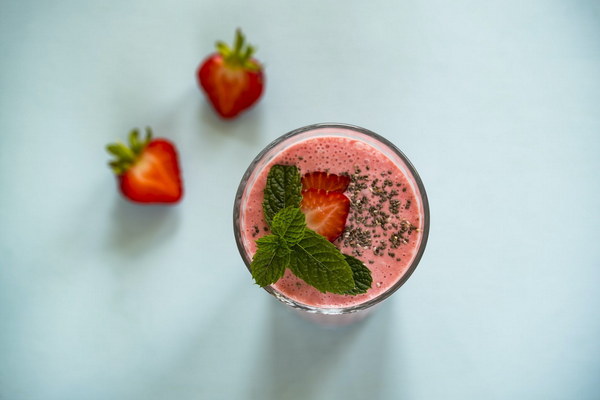Revitalize Your Lungs A Comprehensive Guide to Clearing Phlegm, Relieving Inflammation, and Soothing Coughs
Introduction:
Lung health is crucial for overall well-being, and when respiratory issues such as inflammation, coughs, and excessive phlegm arise, it can be quite discomforting. In this article, we will delve into the concept of clearing phlegm, relieving inflammation, and soothing coughs to help you understand the causes, symptoms, and effective remedies for these common respiratory problems.
I. Understanding the Respiratory System

The respiratory system is a complex network of organs and tissues responsible for breathing and gas exchange. It includes the nose, throat, bronchi, and lungs. When any part of this system becomes inflamed or congested, it can lead to respiratory issues like coughs and excessive phlegm.
II. Causes of Respiratory Issues
1. Viral infections: Common colds, flu, and other viral infections can cause respiratory inflammation and congestion.
2. Bacterial infections: Pneumonia and bronchitis are examples of bacterial infections that can lead to inflammation and coughing.
3. Allergies: Allergic reactions to pollen, dust mites, pet dander, and other allergens can trigger respiratory symptoms.
4. Smoking: Smoking damages the lungs, leading to inflammation, coughs, and increased phlegm production.
5. Air pollution: Inhaling polluted air can irritate the lungs and cause inflammation.
III. Symptoms of Respiratory Issues
1. Persistent cough: A cough that lasts for more than three weeks may indicate an underlying respiratory issue.
2. Phlegm production: Excessive mucus production, which can be yellow, green, or clear, is a common symptom.
3. Shortness of breath: Difficulty breathing, especially during physical activity, can be a sign of respiratory problems.
4. Chest pain: Pain or discomfort in the chest area may indicate inflammation or other respiratory issues.
5. Wheezing: A high-pitched whistling sound when breathing can be a sign of asthma or other respiratory conditions.
IV. Natural Remedies for Clearing Phlegm, Relieving Inflammation, and Soothing Coughs
1. Steam inhalation: Breathing in steam can help loosen mucus and reduce inflammation. Add a few drops of eucalyptus or peppermint oil to enhance the effect.
2. Gargle with warm salt water: This can help soothe a sore throat and reduce inflammation.
3. Honey and lemon: A mixture of honey and lemon in warm water can act as a natural cough suppressant and reduce inflammation.
4. Ginger tea: Ginger has anti-inflammatory properties and can help reduce coughing.
5. Peppermint oil: Peppermint oil can be inhaled or applied topically to help relax the muscles around the airways and reduce coughing.
6. Turmeric: This spice contains curcumin, which has anti-inflammatory properties and can help reduce respiratory inflammation.
V. Lifestyle Changes for Better Lung Health
1. Avoid smoking and secondhand smoke: Smoking is a leading cause of respiratory issues, so quitting is essential for better lung health.
2. Exercise regularly: Regular exercise can improve lung capacity and reduce the risk of respiratory infections.
3. Stay hydrated: Drinking plenty of water can help keep the mucus thin and easier to expel.
4. Avoid allergens: Minimize exposure to allergens that can trigger respiratory symptoms.
5. Practice good hygiene: Regular hand washing and avoiding close contact with sick individuals can reduce the risk of respiratory infections.
Conclusion:
Maintaining lung health is essential for overall well-being. By understanding the causes and symptoms of respiratory issues and implementing natural remedies and lifestyle changes, you can effectively clear phlegm, relieve inflammation, and soothe coughs. Remember to consult a healthcare professional if you experience persistent or severe respiratory symptoms.









